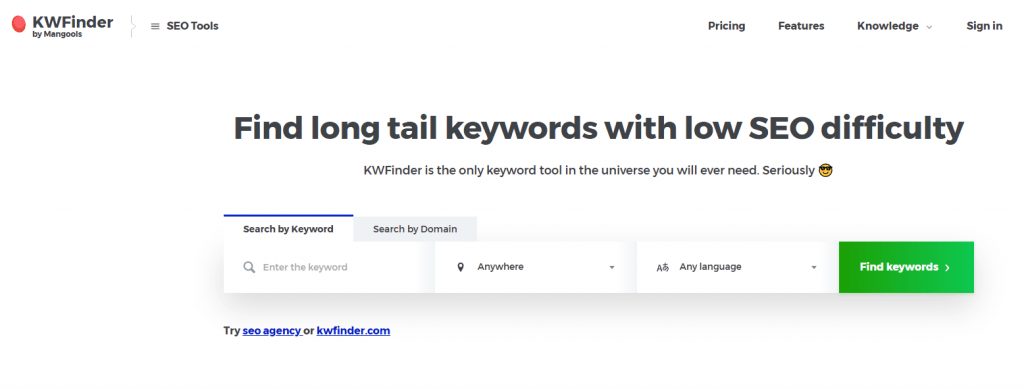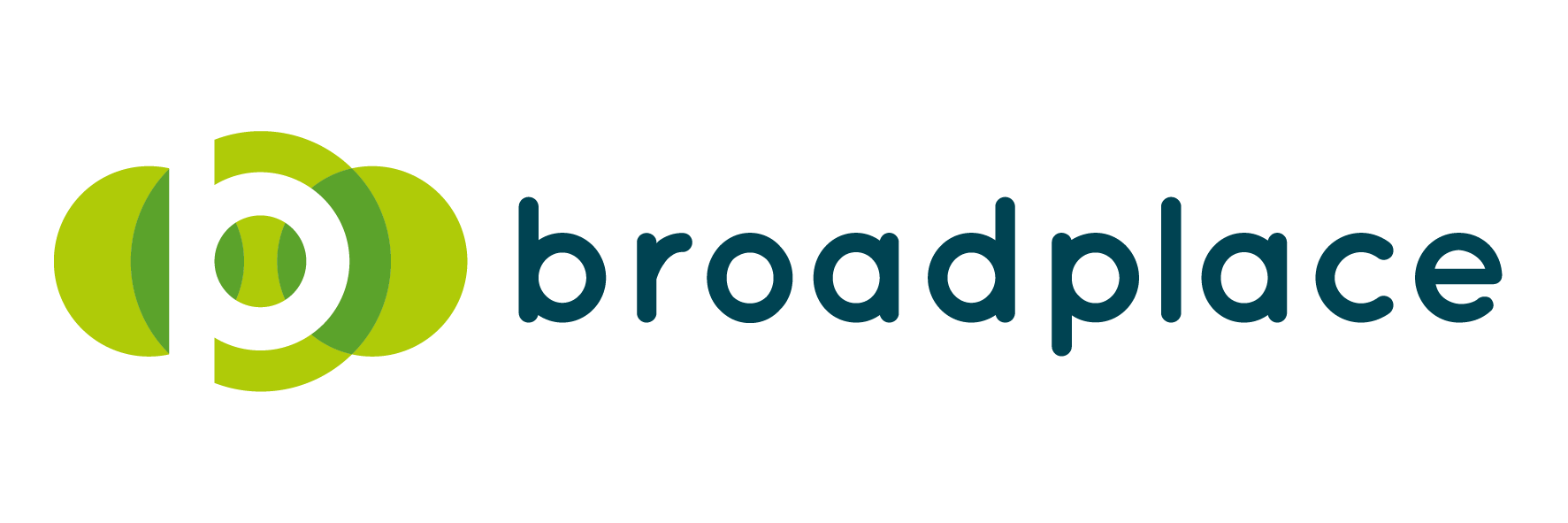- Why is keyword research important for a small business?
- How keyword research is different for SEO and PPC
- How to do keyword research
- Approach to keyword research (define what you’re trying to achieve)
- What tools to use
- How to pick the right keywords
And by the end, you’ll have a road-tested process by which you can start identifying the search terms that your business should be going after
Why is keyword research important for a small business?
Keyword research is really important for any business, as it allows you to see where your strengths and weaknesses are compared to your online competitors, how to expand your online reach and also how big online can be for your business. But why is keyword research important for a small business? The short answer is that budgets are tighter for small businesses. For a small business, this means that you need to find the right combination of:
- Terms your customers are looking for
- Terms that have lower competition
You’re never going to win going up against the big brand. You don’t have the resource and you don’t have the budget. Instead, you want to try and hone in on the keywords that are more relevant and unique to your business.
How keyword research is different for SEO and PPC
Before you get started, you need to understand that keyword research differs for PPC and SEO. The fundamentals are the same but the goal and the way that you do it varies slightly.
Ultimately the difference between SEO keywords and PPC is the intent of the terms you target. We can group search intent into 4 main categories:
Informational keywords
These keywords are searched by people looking for information and sit high in the marketing funnel. They are usually a really good fit in an SEO strategy for building Brand Awareness. You can tell whether a keyword is informational by looking at the search results. If it’s informational it will be blog posts, articles and focused around a question.
The perfect example of this is “how to do keyword research”.
Brand/Navigational keywords
These keywords are searched for by people looking to reach a specific website. There aren’t many cases where you would want to target these as an SEO strategy. Unless they’re yours, that is. In which case, you definitely do.
However, for PPC there are some cases in really competitive industries, where people do run ads targeting competitor’s brand/navigational terms and they can be quite lucrative. The search results in this case should mostly be home pages, contact pages, company social media profiles.
Commercial keywords
These keywords are searched by people with a strong intention to purchase, that are further down the conversion funnel and currently looking to choose and compare from the solutions.
These keywords could be a good fit for both SEO and PPC strategies, depending on available budgets and overall goals. The search results in this case should mostly be webpages comparing, reviewing or listing products and services.
Transactional keywords
These types of keywords are searched by people that want to purchase a product or service.
These keywords are a really good fit for both PPC and SEO, but are traditionally really competitive, so it’s best to compensate your SEO reach with PPC.
The search results for these terms should mostly be e-commerce product/category pages or services landing pages.
Some good examples, in this case, are “google ads credit”, “Hubspot discount code”. For PPC, you want to be targeting those terms that are most likely to transact. And for SEO it’s a bit looser because you don’t directly pay for the traffic. So you can go after terms that will drive brand awareness and may not convert short term.
How to do keyword research
The aim of doing keyword research for a small business is to build a giant list of keywords.
You ideally want that list to:
- Classify terms based on search intent
- Classifying terms based on value to the business
- Classify terms by product or service categories.
However, before you start doing that, there are a few things that you need to consider.
What is your goal?
Is it lead generation? Are you trying to increase brand awareness? Is it a combination of both? If your keyword research doesn’t have a goal in mind it will be directionless. You’ll just be clicking around pulling some terms which have some search volume but don’t do anything for you.
Be aware of the competition
So here is a reality check. You’re not the only one doing this!
Whether you’re competing in the Auction on Google Ads or you’re competing Organically in the SERPs, you’ll be up against some tough competition. So, as you’re starting out you may want to make sure your strategy focuses on low competition keywords and build from there.
Prioritize high-margin website categories
Some categories of your business have a narrow profit margin. These are areas you might want to target for SEO but you definitely want to steer clear of from a PPC point of view. For paid ads, you need to keep it focused on terms that will drive the most value for the business. Then if that is performing well, expand from there
What tools to use for keyword research
So, once you’ve got your goals aligned, you have considered the competition and you know which area of the site to focus the research on – it’s time to get started.
And the best place to start is with the tools that will do most of the legwork for you.
Below is a quick run-through of some of the best tools to do keyword research and how to use them.
Google Keywords Planner

The Google Keyword Planner Tool has four main options for Keyword Research in the Google Ads interface.
Find new keyword ideas
You can plug in your ideas, whether it is your website, or category page and Google will generate ideas for you.
The list does not highlight the most valuable keyword with the most amount of intent. You will have to do that yourself manually by looking at the CPCs and taking a dive into the SERPS.
Or if you’re using Google Sheets you could use this hack to classify the intent of terms: https://sheetsformarketers.com/search-intent-analysis/
Combine keyword lists
Secondly, you can start with multiple keyword lists. This allows Google to combine them, to find new combinations.
Get volumes and trends for keywords you’ve already found
Thirdly, you get search volume and trends.
This is useful to see how much interest there is in terms that you may have found through tools.
Forecast how much you’ll pay for them
Fourthly, you can get click and cost performance forecasts. Take these forecasts with a pinch of salt, and monitor your data, as performance can deviate from these forecasts.
Ahrefs Keyword Explorer

Another really useful tool to use is Ahrefs Keyword Explorer.
Ahrefs is one of the first ports of call when it comes to doing keyword research for SEO because you can quickly get:
- Keyword suggestions
- Monthly volume
- Difficulty in ranking
- Organic CTR
- Keyword priority
Which you can then slice and dice until you find the perfect fitting terms for your strategy.
Then it is just a simple export and voila!
You should have a pretty solid list of terms to target for your small business.

Long-tail keywords tend to be the lowest competition. In fact, the reason they’re called longtail is that they’re the longtail of search terms that make up the majority of the webs traffic.
So if you’re a small business it makes sense to try and target them.
And Keyword Finder is the perfect tool for that.
All you need to do is enter the keyword or the domain, and it will spit out a load of terms you can then go through and prioritise.

Sometimes you just want to find Keywords as you’re scratching around the web. And Keywords Everywhere does just that.
It works as a browser add-on for Chrome and Firefox and it shows key metrics like search volume, CPC, plus it shows you the competition across multiple websites.
How to pick the right keywords
Right, so you’ve used the tools and you’ve got a list of keywords that you’re relatively happy with.
But how do you choose the right ones?
Well, there are a couple of things to look at. And they differ depending on what channel you’re doing keyword research for.
If you’re doing it for PPC you need to think about:
- What’s the cost? If they’re really high cost then as a small business you won’t be able to compete consistently
- What is the intent behind the search? If they aren’t likely to transact and you’ve got a limited budget then you need to start again
- What landing page would you send them to? If there isn’t a page or area on the site that makes sense for them to go to then they’re not going to convert
For SEO you need to look at:
- What type of pages are currently ranking? If it’s a load of blog posts ranking for it then you aren’t going to rank a category page. And vice versa.
- How authoritative are the top pages? Are they established brands in that space? If they are, you might struggle.
- Do the ranking pages have a lot of links to them? If they do then you’re probably going to need to build a lot of links to that page or you won’t be able to compete.
- How well does the page answer what that searcher is looking for? This is the most important question. If you’re confident you’ve got the best page for the user then more often than not you’ll win.
Once you’ve sense checked the above and you’re confident that you’ve got the right keywords for your small business, it’s just about putting a strategy in place to target them. But we’ll save going through that for a later date.
So there you have it, a whistle-stop tour of how to do keyword research for small businesses.
Remember key takeaways are:
- Keyword research for SEO and PPC differs
- Don’t go into this without a goal in mind
- Be aware of the intent of the searches
- Know the competitiveness of the each term
If you are scared of a huge time commitment and looking for an agency that can do all the work for you, you can contact Broadplace, digital marketing experts with more than 15 years of industry experience.

